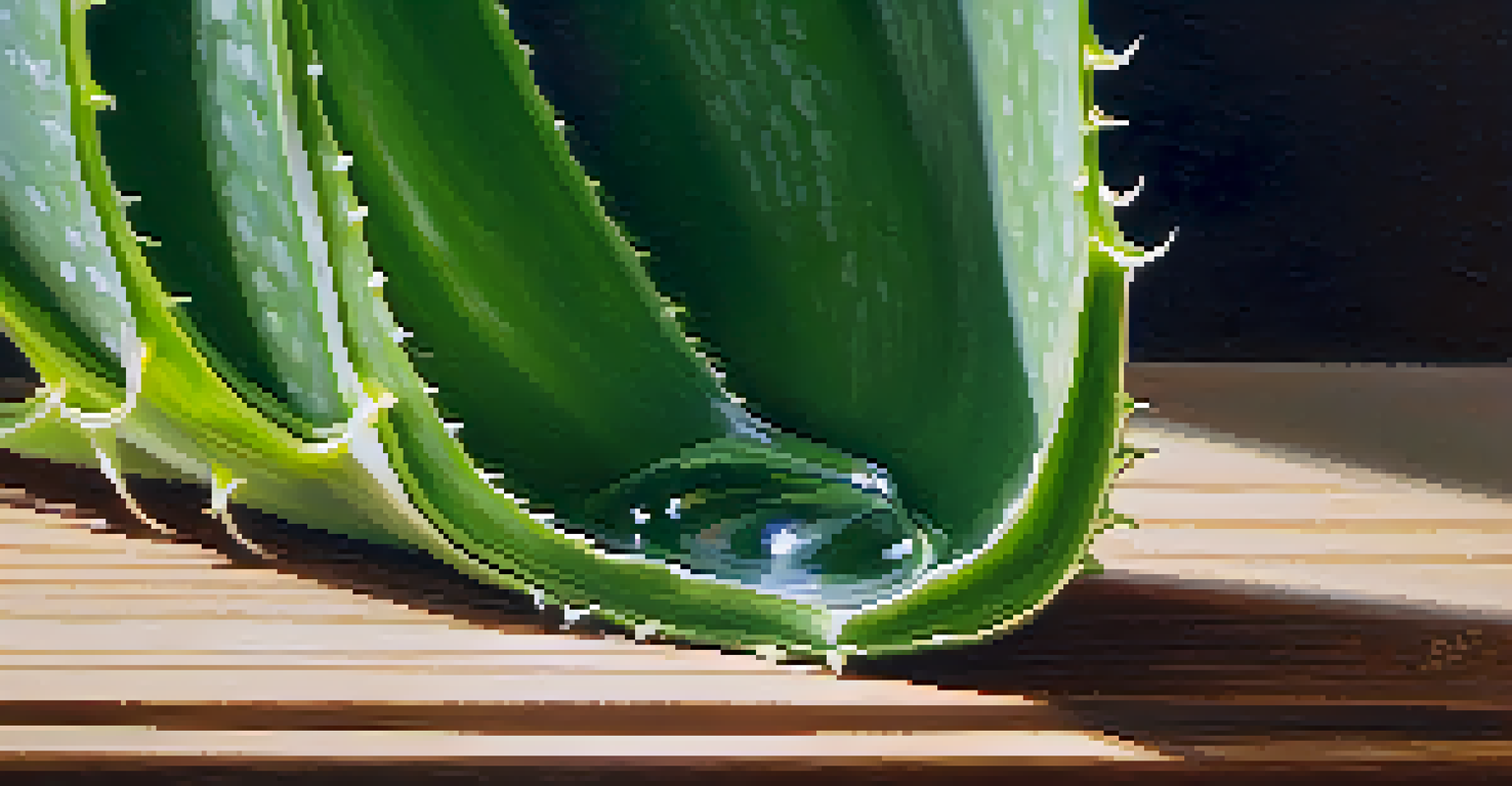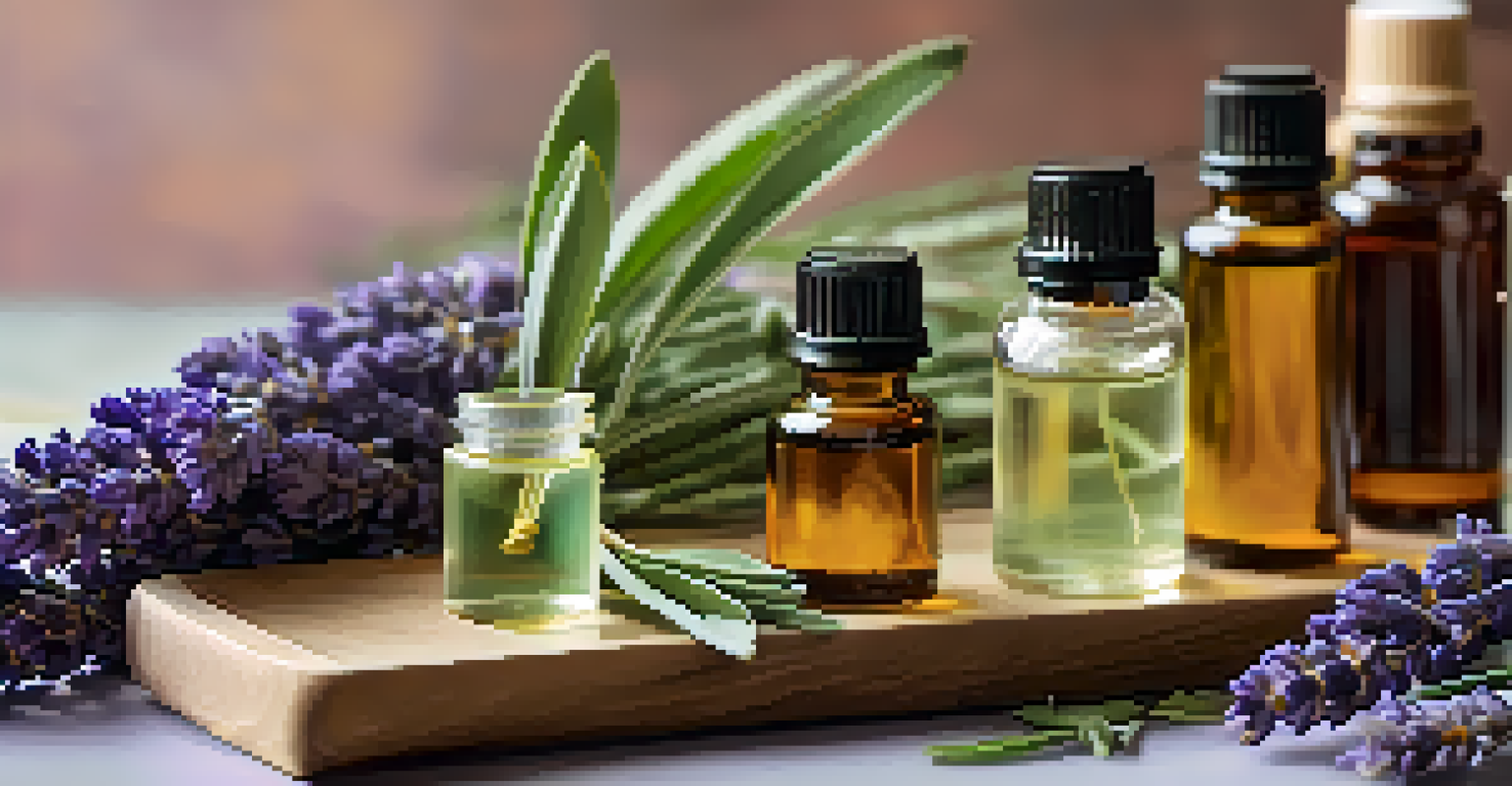Herbal Remedies for Common Skin Conditions: A Naturopathic Guide

Understanding Common Skin Conditions and Their Causes
Skin conditions like eczema, acne, and psoriasis are more common than you might think. They can stem from various causes, including allergies, hormonal changes, and environmental factors. Understanding these conditions is the first step in finding effective herbal remedies.
Nature itself is the best physician.
For instance, acne is often linked to excess oil production and bacteria, while eczema may be triggered by irritants or stress. By recognizing the root causes, we can better tailor our herbal approaches to treat these skin issues holistically.
It's important to remember that each person's skin is unique, and what works for one individual may not work for another. This guide will help you explore herbal options suited to your specific skin condition.
Chamomile: A Soothing Solution for Inflammation
Chamomile is well-known for its calming properties, but did you know it's also a powerful ally for inflamed skin? Its anti-inflammatory effects can help soothe conditions like eczema and dermatitis, reducing redness and irritation.

You can use chamomile in various forms, including teas, topical creams, or essential oils. A chamomile tea compress can be particularly soothing for inflamed areas, providing immediate relief.
Herbal Remedies for Skin Health
Understanding common skin conditions allows for effective use of herbal remedies tailored to individual needs.
Incorporating chamomile into your skincare routine not only addresses inflammation but also promotes overall skin health. It’s a gentle yet effective remedy worth considering.
Aloe Vera: Nature’s Hydrator for Dry Skin
Aloe vera has long been celebrated for its hydrating properties, making it a go-to for those struggling with dry skin. Its gel-like consistency provides a cooling effect, perfect for soothing irritated and flaky patches.
The natural healing force within each of us is the greatest force in getting well.
Rich in vitamins and antioxidants, aloe vera nourishes the skin while helping to repair the moisture barrier. Applying aloe vera gel directly from the plant can offer instant relief and hydration.
Additionally, incorporating aloe vera into your daily skincare routine can prevent dryness, keeping your skin soft and supple. It’s a simple yet effective way to maintain skin health.
Tea Tree Oil: Combatting Acne with Nature’s Antiseptic
Tea tree oil is a well-known natural remedy for acne due to its potent antibacterial properties. It targets the bacteria that cause breakouts, helping to prevent new pimples from forming.
When using tea tree oil, it's crucial to dilute it with a carrier oil, such as jojoba or coconut oil, to avoid skin irritation. A few drops applied to affected areas can work wonders in reducing inflammation and redness.
Chamomile and Aloe Vera Benefits
Chamomile and aloe vera are powerful allies in soothing inflammation and hydrating dry skin, respectively.
Additionally, tea tree oil's ability to control excess oil production makes it a valuable addition to an acne-fighting regimen. Just remember to patch-test it first to ensure your skin reacts positively.
Calendula: Healing Properties for Cuts and Scrapes
Calendula, often found in ointments and creams, is a fantastic herb for healing minor cuts, scrapes, and burns. Its anti-inflammatory and antibacterial properties promote faster healing and reduce the risk of infection.
You can use calendula as a topical treatment, applying a cream or infused oil directly to the affected area. The soothing effect helps alleviate pain and encourages new skin growth.
Incorporating calendula into your first-aid kit is a smart move, especially for those with active lifestyles. It’s a natural way to speed up the healing process and keep your skin healthy.
Lavender: Relaxation and Skin Repair in One
Lavender is not only known for its soothing fragrance but also for its skin-repairing properties. Its antiseptic qualities make it effective for treating minor burns, insect bites, and other skin irritations.
Applying lavender essential oil, diluted with a carrier oil, can promote healing and reduce the appearance of scars. It also provides a calming effect, helping to alleviate stress that can exacerbate skin issues.
Personalized Herbal Skincare Routine
Creating a personalized skincare routine with herbal remedies promotes long-term skin health and nourishment.
Whether used in a bath or as part of your skincare routine, lavender offers both relaxation and skin benefits. It’s a lovely way to nurture your skin while enjoying the aromatic experience.
Nettle: A Nutrient-Rich Ally for Skin Health
Nettle is often overlooked, but it’s packed with nutrients that benefit the skin. High in vitamins A and C, along with essential fatty acids, nettle can help combat skin conditions such as acne and eczema.
You can consume nettle as a tea or use it in topical treatments. Its anti-inflammatory properties can help reduce redness and irritation, making it a valuable addition to your herbal arsenal.

Incorporating nettle into your diet or skincare routine can provide long-term benefits for skin health. It’s a powerful reminder that nature offers a wealth of solutions for our skin.
Creating Your Personalized Herbal Skincare Routine
Now that you’re familiar with various herbal remedies, it’s time to create a personalized skincare routine. Start by identifying your specific skin condition and the herbs that can effectively address it.
Consider integrating one or two herbal remedies at a time to see how your skin responds. This approach allows you to monitor changes and adapt your routine based on your skin’s needs.
Remember, consistency is key in any skincare regimen. By embracing herbal remedies, you’re not just treating your skin but also nurturing it naturally and holistically.